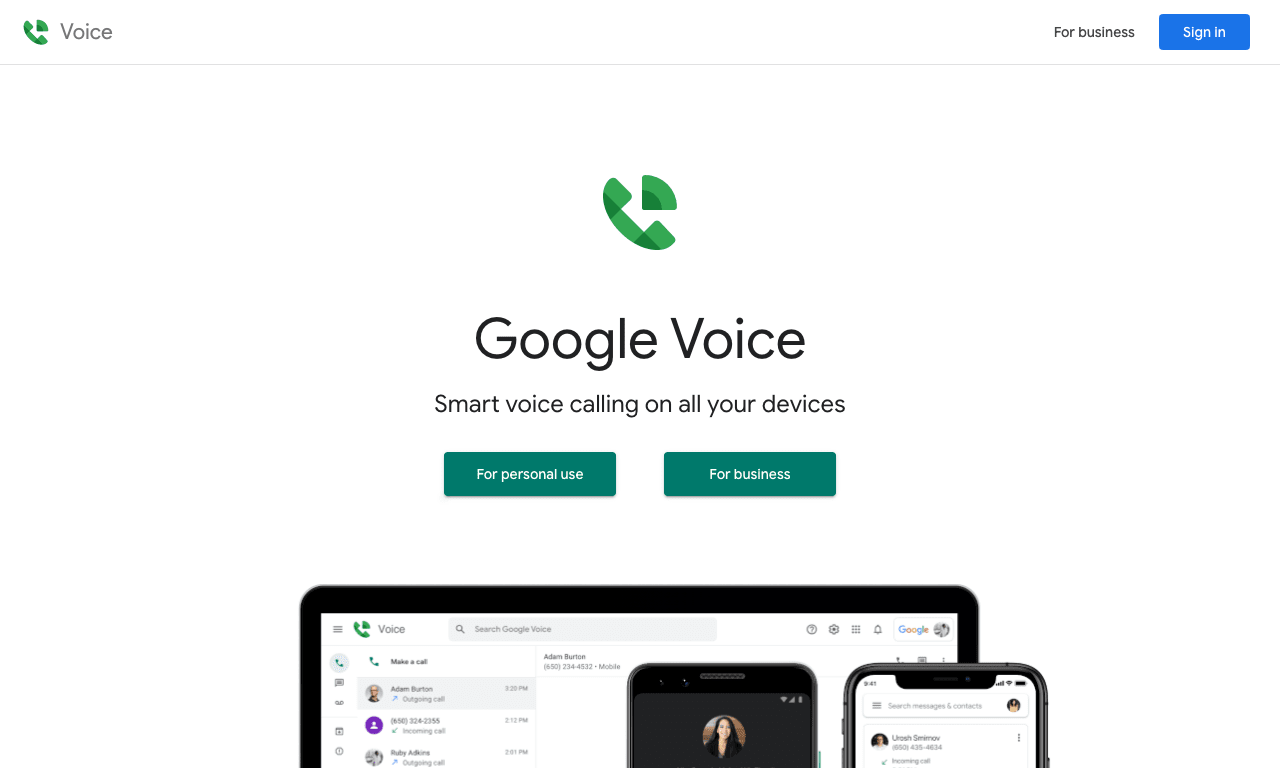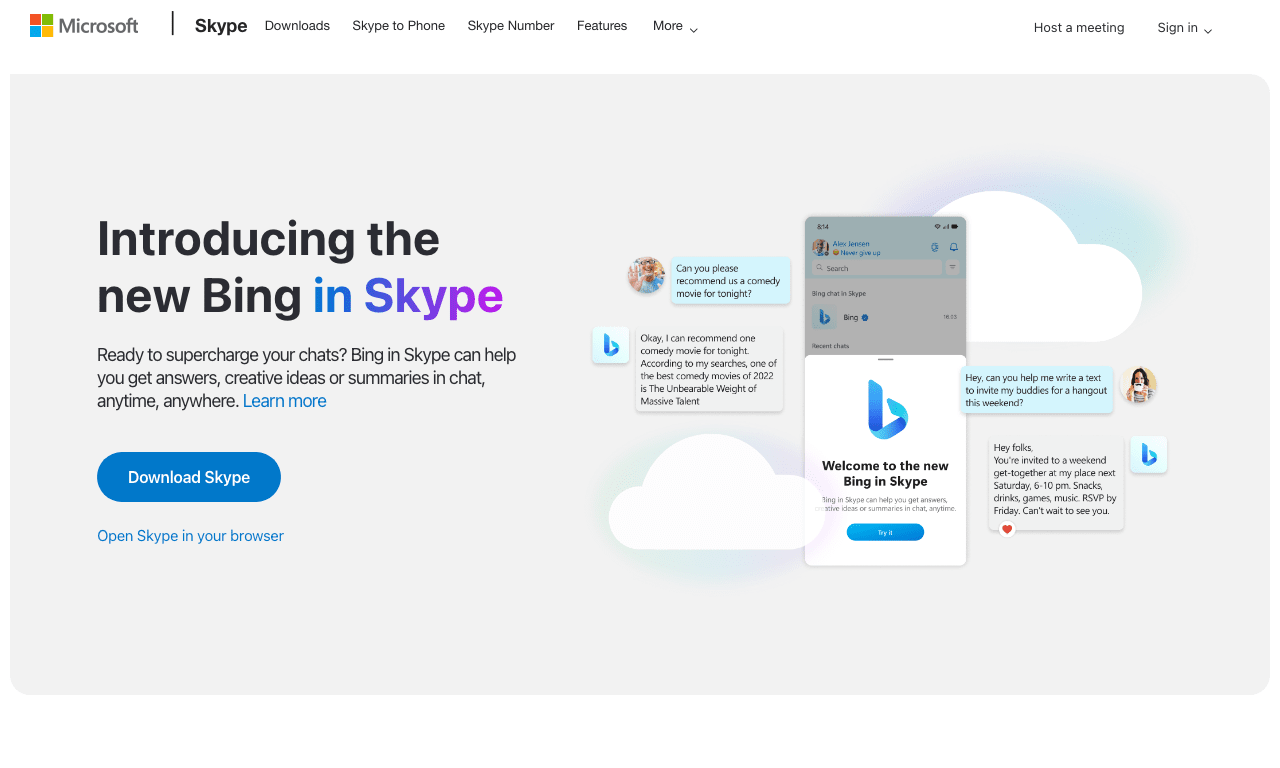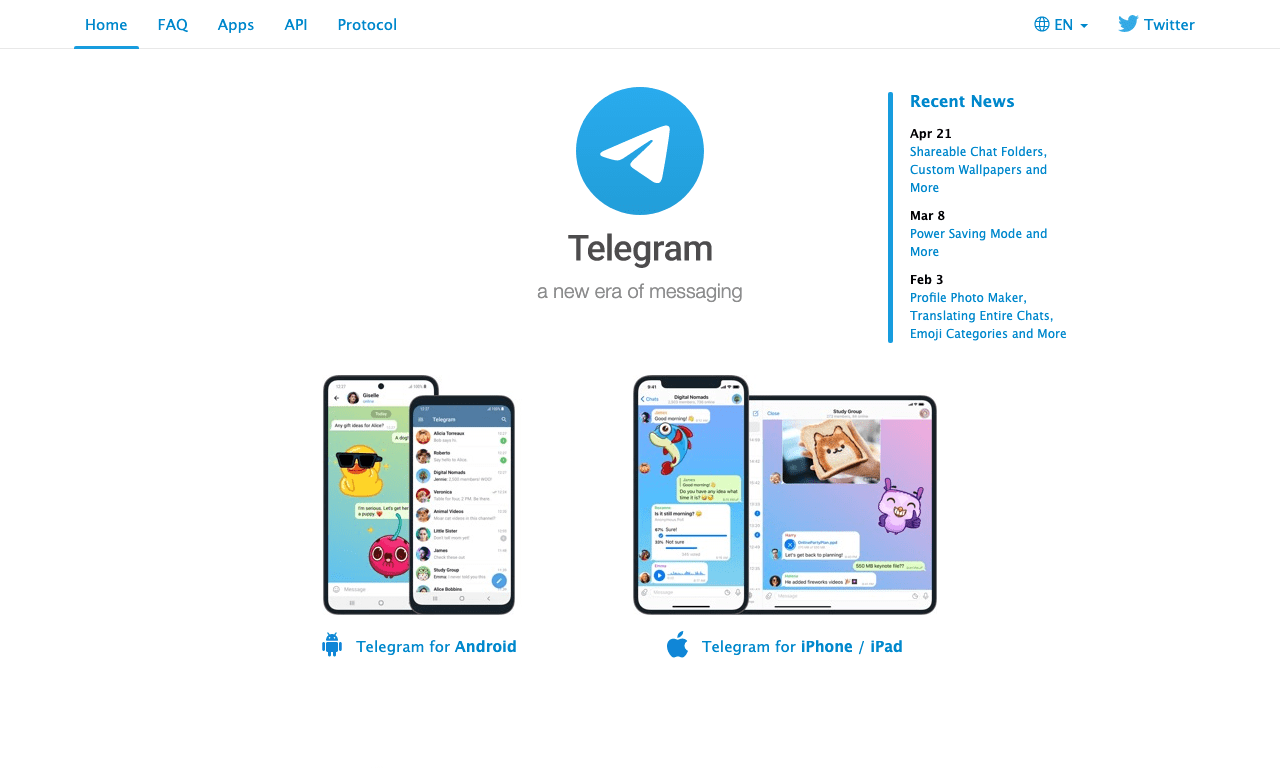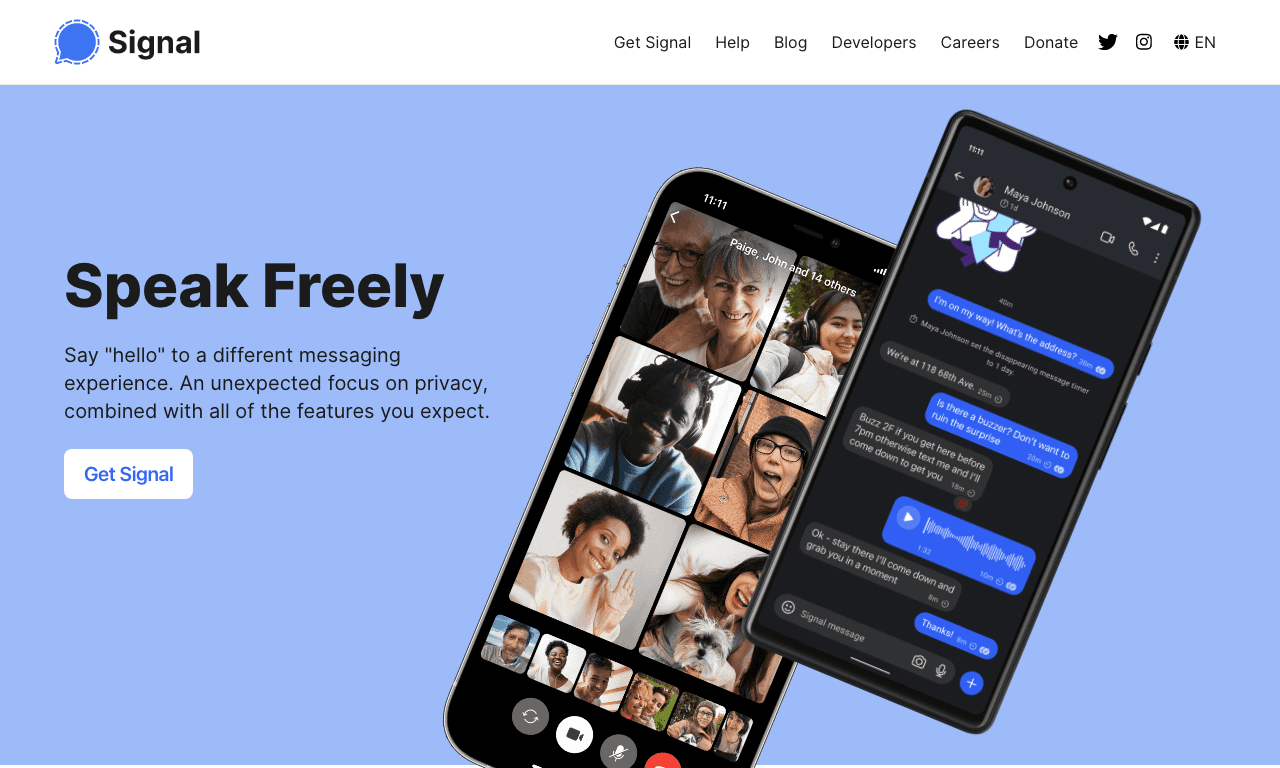
Top 7 Google Voice Alternatives: Best Apps to Use in 2023
Discover the ultimate collection of top-notch communication apps that rival Google Voice in our comprehensive guide to the “Top 10 Google Voice Alternatives: Best Apps to Use in 2023″! As technology advances, so do our choices for effective communication, and it’s essential to stay updated on the latest alternatives to traditional services like Google Voice. In this article, we’ll dive deep into the unique features, benefits, and capabilities of ten remarkable apps to help you make informed decisions about enhancing your personal or professional communication experience. So, if you’re seeking an innovative way to connect with others or simply looking to explore new options, read on to unlock the best Google Voice competitors in 2023.

1.
WhatsApp
4.8
WhatsApp is a popular, cross-platform messaging app that enables users to seamlessly communicate through text messages, voice calls, or video chats, regardless of their device or location. Boasting end-to-end encryption for enhanced privacy, this user-friendly app offers a plethora of features, including group chats, status updates, and document sharing. Ideal for personal or professional use, WhatsApp continually evolves with new features, making it a top choice for fast, secure, and reliable messaging worldwide.
Pros
- Wide availability: WhatsApp is one of the most widely-used messaging applications globally, with over 2 billion active users. This means that it’s easy to connect with people regardless of their location, and many users are likely to have already downloaded the app.
- End-to-end encryption: All messages sent via WhatsApp are encrypted end-to-end, meaning that only the sender and recipient can access the content. This provides a high level of security and privacy for users.
Cons
- Limited functionality: While WhatsApp does offer messaging, voice, and video chat capabilities, it doesn’t have many additional features beyond that. For example, there is no option for screen sharing or collaborative document editing.
- Ownership concerns: WhatsApp is owned by Facebook, which has faced criticism over its handling of user data in the past. This has led to concerns about whether WhatsApp will share user information with Facebook or other third parties in the future.
Conclusion: Overall, WhatsApp is a popular and secure messaging app that is easy to use and has a large user base. However, it may not be the best choice for users who require more features beyond basic messaging and voice/video calling, or who are concerned about potential privacy risks associated with Facebook’s ownership.

2.
Skype
4.7
Skype is a versatile communication app that enables users to connect with friends, family, and colleagues worldwide through instant messaging, voice calls, and video chats. With its robust features, including screen sharing and document collaboration, Skype has become a go-to tool for both personal and professional use. The app is compatible with various devices, ensuring seamless communication no matter where you are. Stay connected with Skype, your ultimate communication solution, while enjoying crystal-clear calls and enhanced productivity.
Pros
- Skype provides free video calling and messaging services to users all over the world.
- It is a widely recognized and trusted application, and is available on multiple platforms including desktop, mobile, and tablet.
Cons
- The quality of calls may vary depending on the user’s internet connection, and there may be issues with lag or latency during a call.
- Skype has faced concerns over security and privacy issues in recent years, including hacking and data breaches.
Conclusion: Overall, Skype is a popular and useful application for people looking to stay connected with friends, family, and colleagues around the world. However, users should be aware of the potential risks and limitations of the service, and take necessary precautions to protect their privacy and security online.

3.
Viber
4.6
Viber is a cutting-edge communication app that facilitates seamless and efficient connectvity between users across the globe. With its remarkable array of features including instant messaging, high-quality voice and video calls, group chats, and expressive stickers and GIFs, Viber has become a preferred choice for millions. The app’s advanced end-to-end encryption ensures privacy and security, allowing users to connect and share moments with friends and family effortlessly. Experience the convenience and reliability of Viber, and stay connected to the world with ease.
Pros
- Viber offers free calling and messaging services between Viber users, which is great for people who have friends and family in different countries.
- The app also offers end-to-end encryption for its users, ensuring that their conversations and data are kept secure and private.
Cons
- Unlike some of its competitors, such as WhatsApp, Viber is not as widely used and may not have as many users to connect with.
- Some features, such as making calls to non-Viber users or sending files, may come at a cost.
Conclusion: Overall, Viber is a useful app for those looking for secure and cost-effective communication with others, especially for international calls and messaging. However, its lack of widespread popularity and potentially costly features may make it less appealing to some users.

4.
Telegram
4.5
Discover the innovative messaging app, Telegram, known for its cutting-edge features and security-focused approach. Stay connected with friends and family in real-time, while enjoying end-to-end encrypted messaging, voice calls, and video chats. Telegram also offers unparalleled file sharing capabilities, chatbots, and customizable themes, all within a user-friendly platform. Experience the essence of secure and private communication with Telegram today.
Pros
- Telegram offers robust security features, including end-to-end encryption for secret chats and self-destructing messages. This makes it a popular messaging app for privacy-conscious users.
- The app allows for large group chats of up to 200,000 members, making it a popular choice for communities and businesses that require extensive communication capabilities.
Cons
- Despite its security features, Telegram has been criticized for its lack of transparency around data privacy practices. There have been concerns raised about the app’s relationship with the Russian government and its potential to be used for nefarious purposes.
- While Telegram offers a range of features, some users may find it overwhelming or difficult to navigate compared to simpler messaging apps.
Conclusion: Overall, Telegram is a solid messaging app with a range of features and robust security options. However, users should be aware of potential privacy concerns and the app’s more complex interface.

5.
Signal
4.4
Signal is a top-tier messaging app offering exceptional privacy and security features without compromising on user experience, empowering individuals to connect seamlessly and safeguard their personal data. Embrace end-to-end encryption, self-destructing messages, open-source transparency, and enhanced communication tools all wrapped up in one user-friendly platform. Experience reliable, private conversations through Signal – your ultimate messaging solution.
Pros
- Signal uses end-to-end encryption, making it one of the most secure communication apps available.
- It is open-source, meaning its code can be reviewed and audited by developers for transparency and security purposes.
Cons
- Signal does not have a feature for making voice or video calls with more than one person at a time.
- It requires both the sender and receiver to have the app downloaded in order to communicate, limiting its reach to those who are using it.
Conclusion: Overall, Signal is a highly secure communication app that prioritizes user privacy, but its limited features and reliance on both parties having the app may be a drawback for some users.

6.
Messenger
4.1
Messenger is a reliable, feature-rich communication app designed to streamline your conversations and enhance connections with friends, family, and colleagues. Boasting an intuitive interface and powerful encryption, Messenger allows you to share instant messages, voice and video calls, and group chats with anyone across the globe. Seamlessly sync your devices and explore various third-party chat extensions, ensuring your conversations remain engaging and personalized. Make the most of Messenger’s interactive platform to send images, videos, documents, and more—all with confidence in its secure and efficient service.
Pros
- Messenger is a free cross-platform messaging app that allows users to communicate with each other through text, voice, and video calls.
- It includes several useful features such as the ability to create group chats, share files, and even play games with friends.
Cons
- Messenger requires users to have a Facebook account in order to use it, which can be a drawback for those who do not want to or cannot create a Facebook profile.
- Some users may find Messenger’s notifications annoying and invasive, especially if they receive a large number of messages or alerts throughout the day.
Conclusion: Overall, Messenger is a convenient and versatile messaging app that has many benefits, including its many features and ability to connect users across different platforms. However, its reliance on Facebook and potential for overwhelming notifications may not make it the best choice for everyone.

7.
Zoom
3.9
Zoom is an innovative, user-friendly video conferencing platform that simplifies virtual communication by offering high-quality video and audio calls, screen sharing, and collaborative tools for individuals and businesses. Set yourself free from geographic limitations and connect securely across devices with ease, using an internet connection. Be it team meetings, webinars, or remote education, Zoom lets you foster productive relationships without compromising on quality or security, ensuring a seamless communication experience. Discover the power of effective collaboration with Zoom’s advanced features designed to enhance your virtual interactions.
Pros
- Zoom is a user-friendly application that is easy to navigate and use.
- It allows for virtual meetings with multiple participants from different locations, making it convenient for remote team collaboration.
Cons
- Zoom has faced concerns around security and privacy issues, leading to recent improvements in their security features.
- The free version of Zoom has limitations on meeting length and number of participants, which may be inconvenient for larger teams or longer meetings.
Conclusion: Overall, Zoom is a useful application for virtual collaboration and communication. While it has faced criticism around security and privacy concerns, it has made efforts to improve these features. The limitations of the free version may be a drawback for some users, but it remains a popular choice for virtual meetings and webinars.
Frequently Asked Questions
What are the best Google Voice alternatives for messaging and calling?
Some of the top Google Voice alternatives include WhatsApp, Skype, Viber, Telegram, Signal, Line, WeChat, Messenger, Hangouts, and Zoom.
Are all Google Voice alternatives free to use?
Most Google Voice alternatives offer free messaging and calling features, but some may have limitations or extra features that require payment.
Which Google Voice alternatives prioritize user privacy and security?
Signal, Telegram, and WhatsApp are known for their end-to-end encryption and focus on user privacy and security.
Are all Google Voice alternatives compatible with multiple devices and platforms?
Yes, most of the listed alternatives are compatible with various devices, including Android, iOS, Windows, and macOS.
Can I make international calls with these Google Voice alternatives?
Most of these alternatives support international calls, either for free between users of the same app or at a reduced cost compared to traditional phone carriers.
What are the top alternatives for video conferencing and online collaboration?
Skype, Zoom, and Hangouts are popular choices for video conferencing and online collaboration.
How many users do messaging apps like WhatsApp and Messenger have?
WhatsApp has over 2 billion active users, while Facebook Messenger has more than 1.3 billion users.
Are all of these Google Voice alternatives suitable for professional use?
While some apps like Skype, Zoom, and Hangouts may cater more to professional users, most of the alternatives can be used for both personal and professional communication.
Can I conduct large group chats with these Google Voice alternatives?
Many of these applications support group chats of varying sizes, with Telegram allowing up to 200,000 members in a single group chat.
How do I choose the best Google Voice alternative for my needs?
When selecting the best alternative, consider factors such as privacy, security, user base, additional features, platform compatibility, and ease of use based on your specific requirements and preferences.
What is Google Voice?
Google Voice is a phone service provided by Google that enables users to make and receive calls, send text messages, and manage voicemail. It integrates with other Google services and allows for easy management across multiple devices. More details can be found on the Google Voice homepage.
How can I install Google Voice on my smartphone?
To install Google Voice, you must visit your device’s app store (Google Play Store for Android devices and Apple App Store for iOS devices) and search for ‘Google Voice’. Download and install the app, then follow the prompts to set it up.
Can I use Google Voice for international calls?
Yes, you can use Google Voice for international calls. However, these calls are not free and the rates vary by country. For a comprehensive list of rates, visit the Google Voice International Rates page.
Is it possible to use Google Voice without a Google account?
No, a Google account is necessary to use Google Voice. This is required for authentication and to sync your data across devices and platforms.
How can I set up voicemail in Google Voice?
To set up voicemail in Google Voice, open the app and go to ‘Settings’. Tap on ‘Voicemail’, then ‘Greeting’. Here, you can record a new greeting by following the on-screen prompts.
Can Google Voice transcribe my voicemails?
Yes, Google Voice has a voicemail transcription feature. It can convert your voicemails to text and send them to your email. This feature can be enabled in the app’s settings, under the ‘Voicemail’ section.
Can I forward my Google Voice calls to another number?
Yes, Google Voice allows you to forward calls to another number. In the ‘Settings’ menu, go to ‘Account’ and then ‘Linked numbers’. Here, you can enter the number you wish to forward calls to. Confirm by clicking ‘Save’.
Does Google Voice support group messaging?
Yes, Google Voice supports group messaging. You can create a group in the ‘Conversations’ tab by clicking the ‘New Conversation’ button and adding multiple contacts. Then, you can send texts to the group as you would in a standard messaging app.
What is the cost of using Google Voice?
Google Voice is free to download and use for phone calls and texts within the U.S. and Canada. However, there are charges for international calls, which can be found on the Google Voice International Rates page.
Can I use Google Voice on multiple devices?
Yes, you can use Google Voice on multiple devices. The service is available on smartphones, tablets, and computers. You simply need to install the Google Voice app or visit the Google Voice website to access your account on different devices.
 ping.fm
ping.fm 